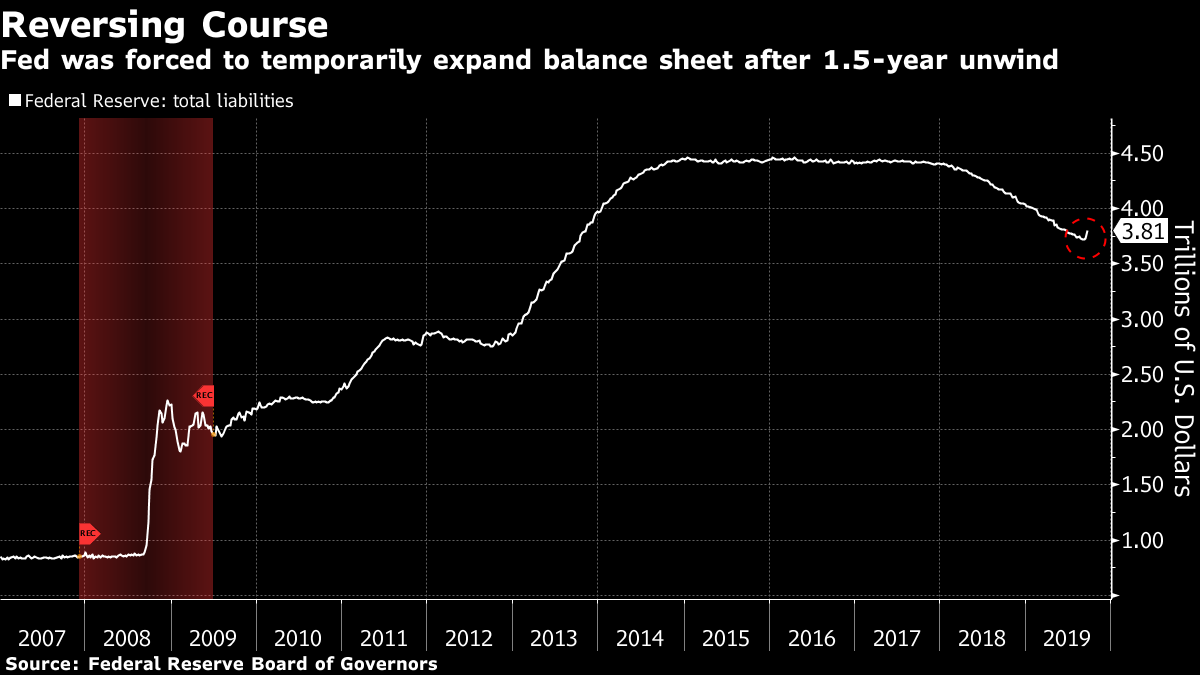Market Action
Global equity markets were buoyed late in the week by hopes for a truce in the US–China trade war and optimism that a Brexit deal might be reached by the end of the month. The yield on the 10-year US Treasury note rose 19 basis points higher than a week ago to 1.72%. The price of a barrel of West Texas Intermediate crude oil increased 3.75% to $54.79 per barrel, partially due to explosions aboard an Iranian tanker in the Red Sea.
The Nobel Peace Prize for 2019 was awarded to the Prime Minister of Ethiopia, Abiy Ahmed, for his initiative to resolve the country’s ongoing conflict with neighboring country Eritrea. It appears an oxymoron to award the Nobel Peace Prize to a person who on one hand advances peace (with Eritrea) but on the other hand jeopardizes peace by undermining regional stability and prosperity through the Nile dam project he is pursuing.
Investors anticipate concessions on the part of US and Chinese trade negotiators, which could forestall the implementation of two rounds of US tariff hikes scheduled to take effect mid-October and mid-December. At a meeting on Friday, the US and China agreed on the first phase of a trade accord that could de-escalate tensions between the two economic powers, with the US saying it would hold off on raising tariffs next week and China saying it agreed to raise its purchases of U.S. agricultural products.
The World Bank and the International Monetary Fund downgraded their 2019 economic growth forecasts. IMF Managing Director, Kristalina Georgieva, estimated that by 2020 the cumulative effect of trade uncertainty will have reduced global gross domestic product by about 0.8%. The remarks come ahead of next week’s autumn World Bank/IMF meetings in Washington.
US Federal Reserve Chairman Jerome Powell said that the central bank will likely begin to expand the Fed’s balance sheet in coming months in order to alleviate strains in money markets that emerged recently. Any purchase of Treasuries will be concentrated in short-term bills and will have no bearing on the Fed’s monetary policy, said Powell.
The Financial Times reported that 58.5% of global central banks lowered interest rates in the third quarter of 2019. This is the highest percentage since the aftermath of the global financial crisis.
What Could Affect the Markets in the Days Ahead
Factset has estimated that Q3 earnings for S&P 500 companies will decline 4%. That would be the first time the index has reported three straight quarters of year-over-year earnings declines since Q4 2015 through Q2 2016.
The International Energy Agency last week cut its oil demand growth forecast by 100,000 to 1 million barrels a day for 2019 and by 100,000 to 1.2 million barrels a day for 2020. The projected 2019 growth rate would be the weakest demand boost since 2016.
After what was described as a constructive meeting last week, British Prime Minister Boris Johnson and Irish Taoiseach Leo Varadkar said the two leaders see a path to a Brexit agreement and continue to believe a deal is in everyone’s interest. A European Union summit to address the United Kingdom’s exit from the EU is scheduled for late next week; under UK law, Johnson is required to seek a Brexit extension by October 19 if an agreement is not reached by the end of the summit on October 18. Brexit Secretary Steve Barclay met Friday with the EU’s chief negotiator, Michel Barnier, and the two sides agreed to intensify negotiations. Sterling and gilt yields rose on renewed optimism regarding a deal.
This Week From BlackSummit
False Positive Signals Meet Immanuel Kant: Recessionary Indications & Portfolio Considerations
John E. Charalambakis
Recommended Reads
China’s Hidden Capital Flight Surges to Record High
Trump’s Capitulation to Erdogan Destroys U.S. Credibility
From financial crisis to inequality — how economists got it wrong<
Top Secret Russian Unit Seeks to Destabilize Europe, Security Officials Say
A $440 Billion Pension Market Sounds Alarm as Liabilities Swell
THE UNTOLD STORY OF HOW GEORGE W. BUSH LOST CHINA
Video of the Week
How Boris Johnson has unleashed Brexit’s ‘demons’
Image of the Week

